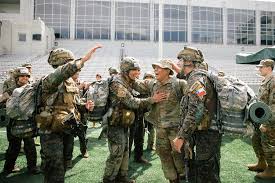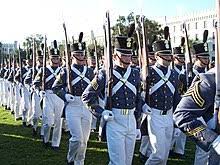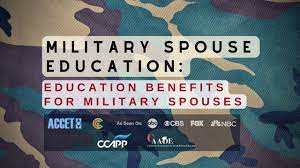The Role of International Military Academies in Global Security
International military academies play a crucial role in shaping the future of global security. These institutions serve as training grounds for military personnel from various countries, fostering cooperation, unity, and understanding among nations.
One key aspect of international military academies is the exchange of knowledge and best practices among cadets from different cultural backgrounds. This exchange helps to build strong relationships and promotes collaboration in addressing common security challenges.
Furthermore, international military academies provide rigorous training programs that focus on leadership, strategy, and tactical skills. Cadets are exposed to diverse scenarios and simulations that prepare them for real-world situations, ensuring they are well-equipped to handle complex security threats.
By bringing together cadets from around the world, international military academies create a network of future leaders who can work together to promote peace and stability. This network enhances communication and coordination between countries, ultimately strengthening global security efforts.
In conclusion, international military academies play a vital role in fostering cooperation, building relationships, and preparing future leaders in the field of defense and security. These institutions contribute significantly to maintaining peace and stability on a global scale.
7 Benefits of Attending an International Military Academy: Building Global Leaders and Strengthening Security
- Diverse cultural exchange among cadets promotes global understanding and cooperation.
- Rigorous training programs develop strong leadership skills and tactical expertise.
- Cadets gain exposure to a variety of security challenges, preparing them for real-world scenarios.
- Networking opportunities with cadets from different countries enhance international collaboration.
- Facilities and resources at international military academies are top-notch for comprehensive training.
- Cadets receive education on best practices in military strategy and defense techniques.
- Graduates of international military academies contribute to strengthening global security efforts.
Challenges Faced by International Military Academies: Addressing Communication, Cultural, and Security Concerns
- Language barriers can hinder effective communication among cadets from different countries.
- Cultural differences may lead to misunderstandings and conflicts within the academy.
- Security risks exist when sharing military tactics and strategies with cadets from various nations.
- Political tensions between countries can impact cooperation and collaboration at the academy.
- Logistical challenges arise when coordinating training exercises involving cadets from diverse backgrounds.
- Differing military doctrines and practices among nations can create challenges in standardizing training programs.
- Cadets may face discrimination or bias based on their nationality or cultural background.
Diverse cultural exchange among cadets promotes global understanding and cooperation.
One significant advantage of international military academies is the promotion of global understanding and cooperation through diverse cultural exchange among cadets. By bringing together military personnel from different countries and cultural backgrounds, these academies create a rich environment for sharing perspectives, traditions, and values. This exchange fosters mutual respect, empathy, and open-mindedness among cadets, ultimately strengthening international relations and cooperation in addressing common security challenges on a global scale.
Rigorous training programs develop strong leadership skills and tactical expertise.
One significant advantage of attending an international military academy is the rigorous training programs that are designed to cultivate strong leadership skills and tactical expertise among cadets. Through intensive training exercises and simulations, cadets are pushed to their limits, honing their decision-making abilities, strategic thinking, and problem-solving skills. This rigorous training not only prepares cadets for the challenges they may face in the field but also instills in them a sense of discipline, resilience, and teamwork that are essential qualities of effective leaders in the military.
Cadets gain exposure to a variety of security challenges, preparing them for real-world scenarios.
Cadets enrolled in international military academies benefit greatly from gaining exposure to a diverse range of security challenges, which effectively prepares them for real-world scenarios they may encounter in their future military careers. By being exposed to different types of security challenges during their training, cadets develop critical thinking skills, strategic planning abilities, and the adaptability needed to navigate complex and unpredictable situations. This hands-on experience ensures that cadets are well-prepared to address the multifaceted security threats that exist in today’s ever-changing global landscape.
Networking opportunities with cadets from different countries enhance international collaboration.
Networking opportunities with cadets from different countries at international military academies provide a valuable platform for enhancing international collaboration. By interacting with peers from diverse cultural backgrounds, cadets gain insights into different military strategies, approaches, and perspectives. This exchange of ideas fosters mutual understanding and trust, laying the foundation for future cooperation on global security challenges. Building relationships with cadets from various nations not only strengthens personal connections but also promotes diplomatic ties that can be instrumental in addressing complex security issues through collaborative efforts on an international scale.
Facilities and resources at international military academies are top-notch for comprehensive training.
Facilities and resources at international military academies are top-notch for comprehensive training. These academies are equipped with state-of-the-art facilities, cutting-edge technology, and specialized resources that provide cadets with a realistic and immersive training experience. From advanced simulation labs to modern training grounds, cadets have access to everything they need to develop their skills in a challenging yet supportive environment. This level of excellence in facilities and resources ensures that cadets receive the highest quality training possible, preparing them effectively for the complexities of modern military operations.
Cadets receive education on best practices in military strategy and defense techniques.
Cadets enrolled in international military academies benefit greatly from receiving education on best practices in military strategy and defense techniques. This specialized training equips cadets with the knowledge and skills necessary to effectively analyze, plan, and execute military operations. By learning from experienced instructors and engaging in hands-on exercises, cadets are able to enhance their understanding of advanced defense tactics and strategies. This pro of international military academies ensures that cadets are well-prepared to handle complex security challenges and contribute to global peacekeeping efforts with proficiency and expertise.
Graduates of international military academies contribute to strengthening global security efforts.
Graduates of international military academies play a crucial role in strengthening global security efforts. With their diverse backgrounds, training, and experiences, these graduates bring a unique perspective to security challenges. By working collaboratively with counterparts from different countries, they are able to leverage their skills and knowledge to address complex security threats effectively. Their strong network of connections established during their time at the academy enables them to foster cooperation and coordination on an international level, ultimately contributing to a safer and more secure world for all.
Language barriers can hinder effective communication among cadets from different countries.
Language barriers within international military academies can pose a significant challenge to effective communication among cadets from diverse backgrounds. Misunderstandings and misinterpretations may arise, potentially impacting collaboration, coordination, and the overall effectiveness of training exercises. Overcoming these language barriers requires dedicated efforts in language training and cultural sensitivity to ensure that cadets can communicate clearly and work together seamlessly in addressing security challenges. Addressing this con is essential to fostering a cohesive and unified environment within international military academies.
Cultural differences may lead to misunderstandings and conflicts within the academy.
One significant con of international military academies is that cultural differences among cadets from diverse backgrounds may lead to misunderstandings and conflicts within the academy. Varying customs, traditions, and communication styles can create barriers to effective teamwork and collaboration. Misinterpretations of behaviors or actions based on cultural norms can result in tension and discord among cadets, hindering their ability to work together cohesively. Addressing these cultural differences and promoting cultural sensitivity are essential in overcoming such challenges and fostering a harmonious learning environment within international military academies.
Security risks exist when sharing military tactics and strategies with cadets from various nations.
One significant con of international military academies is the potential security risks associated with sharing military tactics and strategies with cadets from various nations. While collaboration and knowledge exchange are important aspects of these institutions, the sharing of sensitive information can pose a threat to national security. There is a risk that classified tactics or strategies could be compromised or fall into the wrong hands, potentially undermining a country’s defense capabilities. Therefore, maintaining strict protocols and safeguards to protect confidential information is crucial in mitigating these security risks within international military academies.
Political tensions between countries can impact cooperation and collaboration at the academy.
One significant drawback of international military academies is the potential for political tensions between countries to hinder cooperation and collaboration within the academy. When diplomatic relations between nations are strained, it can create challenges in fostering a harmonious learning environment among cadets from different countries. Political differences may lead to distrust, communication barriers, and difficulties in working together towards common goals, ultimately impacting the effectiveness of training programs and diminishing the potential for building strong international relationships among future military leaders.
Logistical challenges arise when coordinating training exercises involving cadets from diverse backgrounds.
Logistical challenges can arise when coordinating training exercises involving cadets from diverse backgrounds at international military academies. Differences in language, cultural norms, and military practices can complicate communication and coordination during joint exercises. Ensuring that all cadets understand instructions clearly and can effectively work together may require additional time and resources. Overcoming these logistical hurdles is essential to maximize the effectiveness of training programs and foster a cohesive learning environment for cadets from various countries.
Differing military doctrines and practices among nations can create challenges in standardizing training programs.
One significant challenge of international military academies is the presence of differing military doctrines and practices among participating nations. This diversity can create obstacles in standardizing training programs, as each country may have unique approaches to warfare, tactics, and strategies. Harmonizing these varied doctrines to develop a cohesive training curriculum can be complex and time-consuming. It requires careful consideration and compromise to ensure that all cadets receive comprehensive training while respecting the individual traditions and practices of each nation’s military forces. Addressing these differences is essential to foster effective collaboration and unity among cadets from diverse backgrounds within international military academies.
Cadets may face discrimination or bias based on their nationality or cultural background.
Cadets enrolled in international military academies may encounter a significant con in the form of discrimination or bias based on their nationality or cultural background. This issue can hinder the overall effectiveness of the training programs and create barriers to collaboration among cadets from different countries. Such discrimination can lead to feelings of isolation, mistrust, and division within the academy, ultimately undermining the goal of fostering unity and cooperation among future military leaders. Addressing and mitigating these biases is crucial to ensuring a supportive and inclusive environment where all cadets can thrive and contribute positively to global security efforts.




